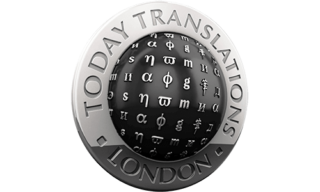Last week, the BBC reported on an editorial in the Chinese ruling party’s official newspaper, The People’s Daily, which denounced the increasing use of so-called ‘zero translations’ (foreign words and phrases that have crept into everyday vocabulary) in the media, online and even within scientific journals.
The editorial claimed that incorporating words such as “OK,” “Bye-bye” and even “iPhone” (which is not technically a word, no matter how much Apple would like to claim otherwise) harms the Chinese language’s integrity and harmony, dilutes the richness of the country’s cultures and impedes comprehension.
Latin characters, Chinese sentences
Use of foreign words, phrases and acronyms in China has long polarised opinion, and this is not the first time we have heard such protests from China’s ruling party. In 2010, the BBC also reported on an outright ban on foreign words – particularly English ones – within newspapers, books and websites. The ban also extended to television and radio.
One of the most cited examples of this law in action was a ban on the acronym NBA (The US’s National Basketball Association), which was replaced with ??? (‘mei zhi lan’), literally translated as American Professional Basketball. By 2012, however, the Modern Chinese Dictionary had reintroduced NBA, along with more than 200 other foreign words, and foreign-influences slowly made their way back into the mainstream.
Taking a leaf from the English tongue
Almost all the languages spoken today developed thanks to borrowed words from other tongues, known as loan words. No other language seems to have done so more than English. Everyday words such as ‘sky,’ ‘umbrella’ or ‘guitar’ find their roots from England’s continental neighbours. Click here for Wikipedia’s full and very exhaustive list.
Funnily enough, words such as ‘kowtow,’ ‘gung ho’ and ‘ketchup’ stem from Simplified Chinese and entered the English lexicon as recently as the 1950s, an era cited by the Wall Street Journal’s China blog as the “heyday for linguistic absorption from China.”
One could argue that it is the English language’s malleability that has helped it supposedly become the world’s lingua franca. The number of familiarities it shares with other languages also makes it – whether in films, television series, and technology – easily exportable.
Modernising and exporting Chinese
To say that China completely closes itself off from the influences of other languages would not be wholly true. Indeed, some words have been fully absorbed into the Chinese language: ‘Ku’ for ‘cool,’ ‘yimeir’ for ’email’ and ‘qiaokeli’ for ‘chocolate’. In fact, the Simplified Chinese translation of Coca-Cola, ‘Ke Kou Ke Le‘ – meaning tasty and jolly – is considered one of the best brand name translations.
These words, however, began as zero translations before they absorbed into the lexicon. By restricting their use, Simplified Chinese risks ceasing to modernise as well as failing to adapt to today’s global society.
The increasing importance of China’s economy and its position on the global stage has encouraged a record number of people to take up learning the language. But Chinese authorities must also understand that they need to make their language exportable if it is see anything like the number of non-native speakers that English does in the coming decades. Nothing helps encouraging and easing the learning curve more than finding those familiarities.
Perhaps the best means of protecting Chinese language, culture and history, therefore, is by allowing the language to grow and adapt to the way people communicate, rather than insisting it should stay as it is. After all, the UK no longer speaks the language of Chaucer and Latin evolved into the Romance languages.

